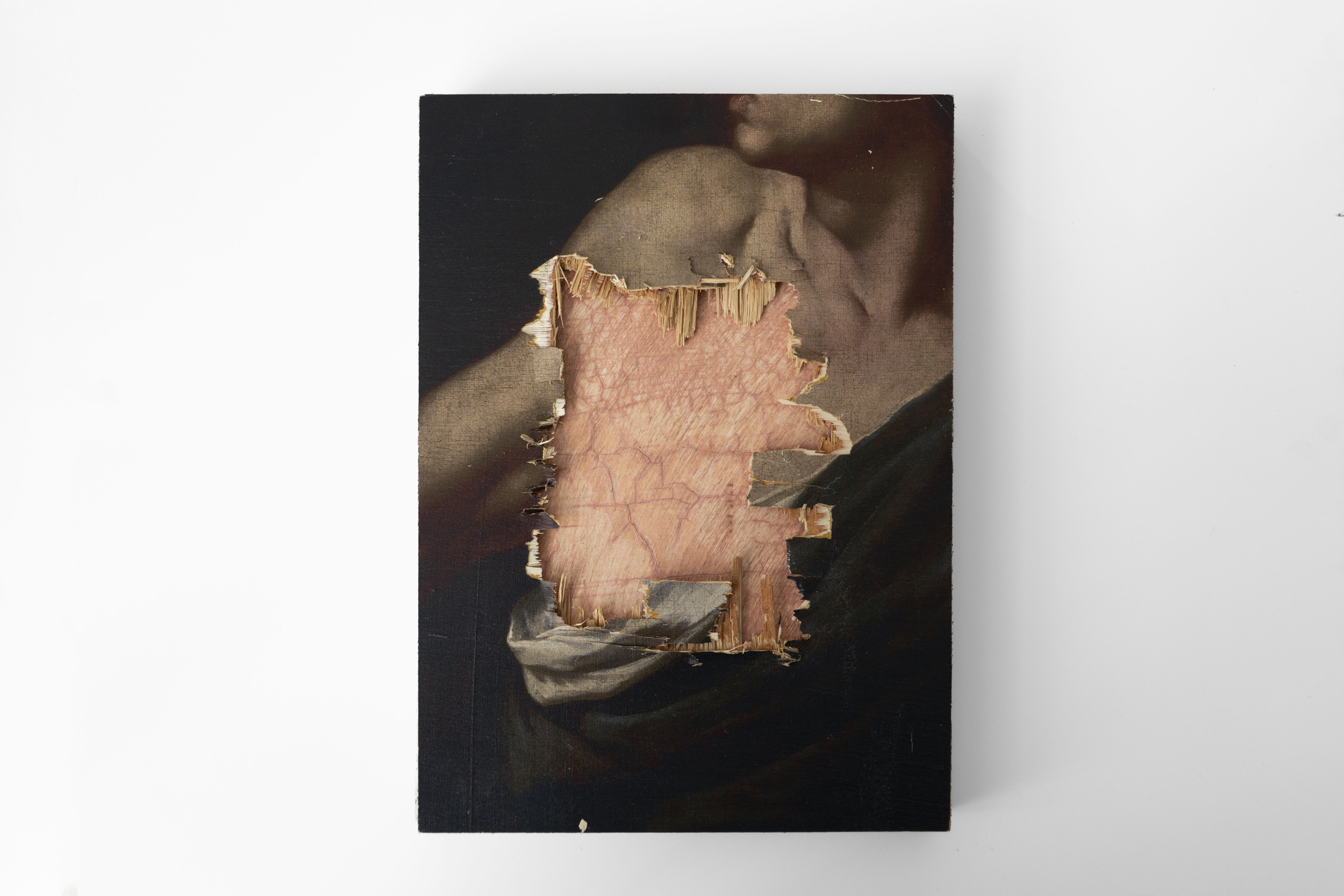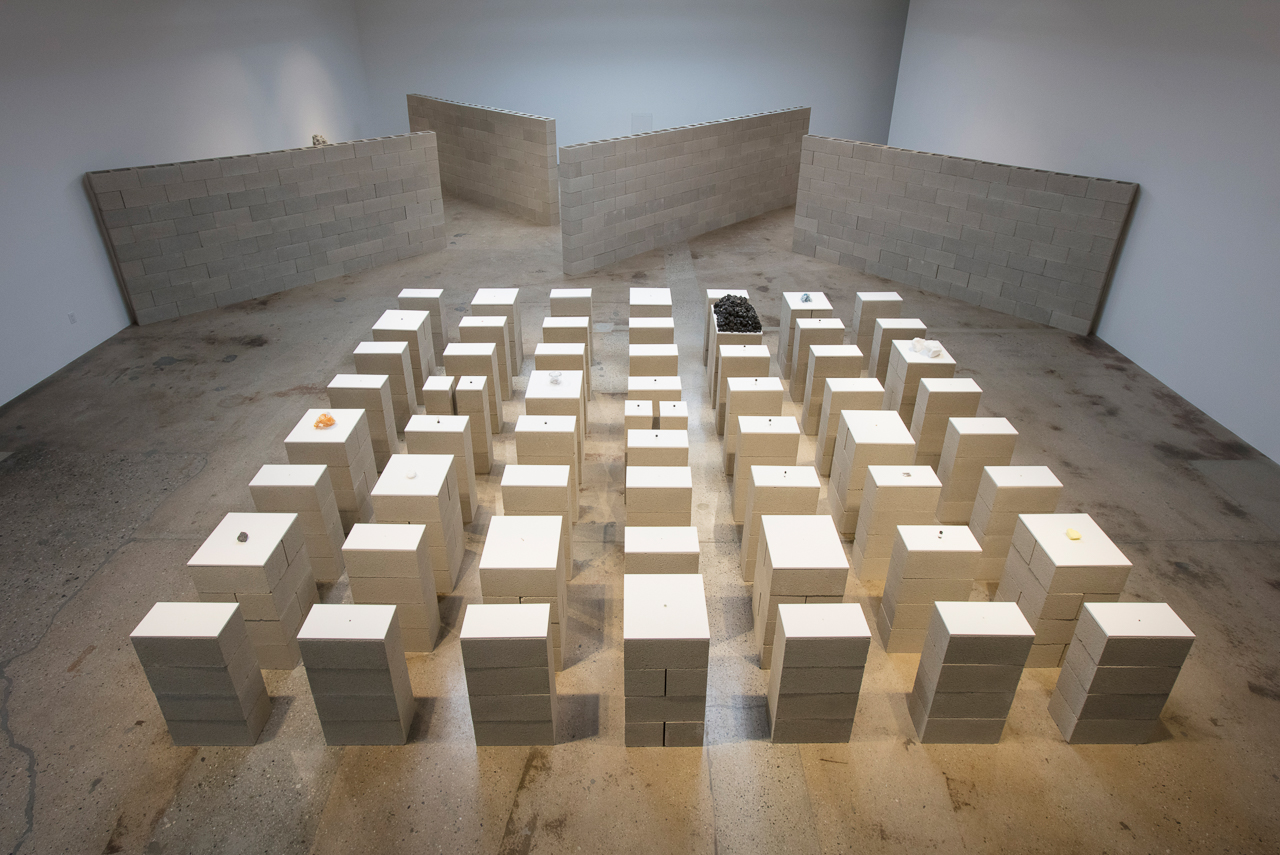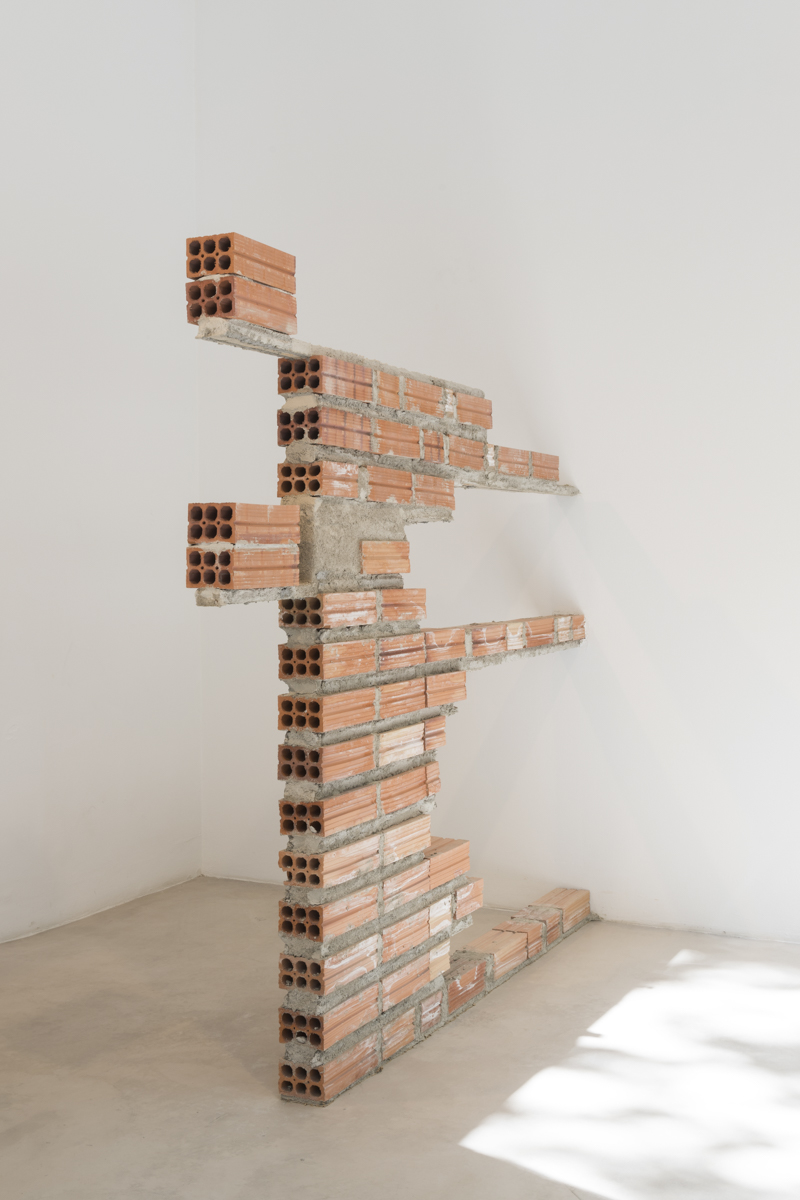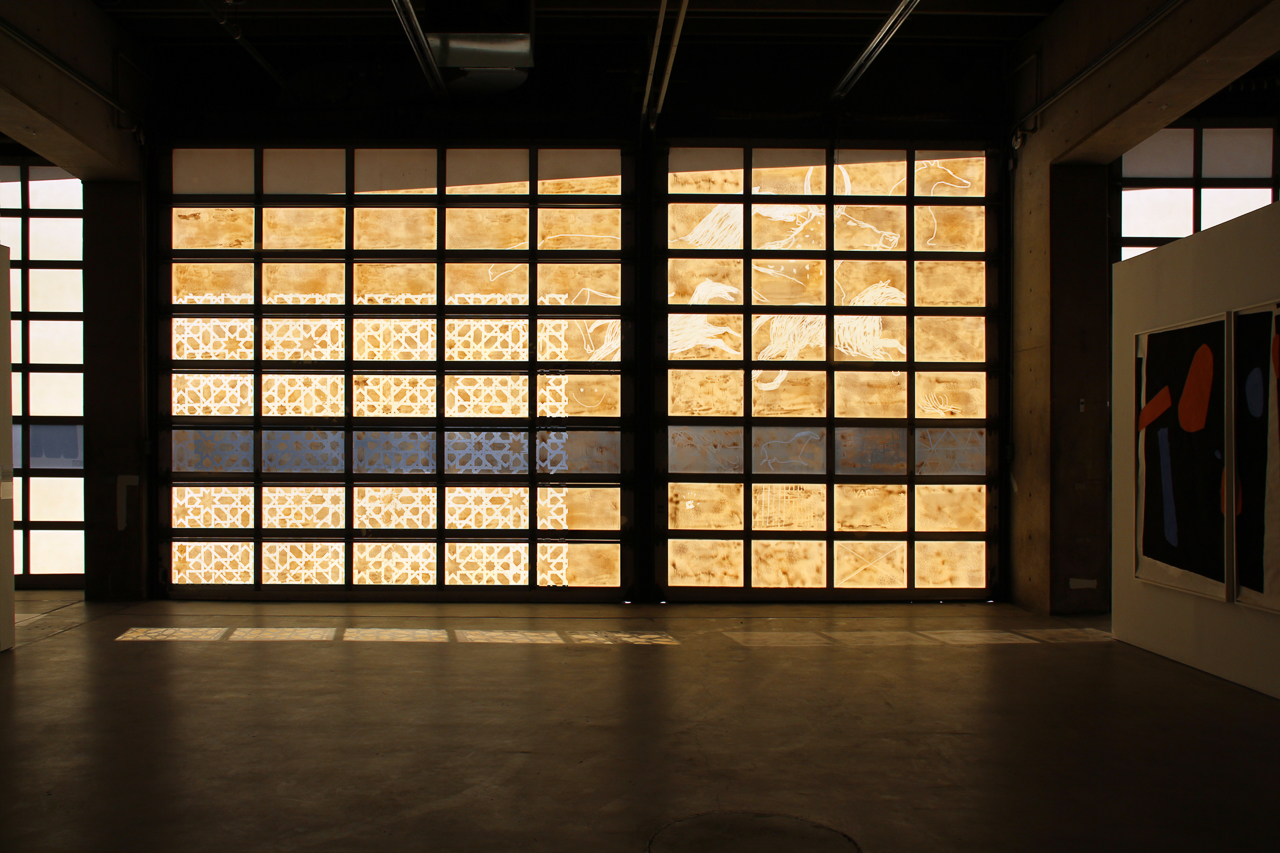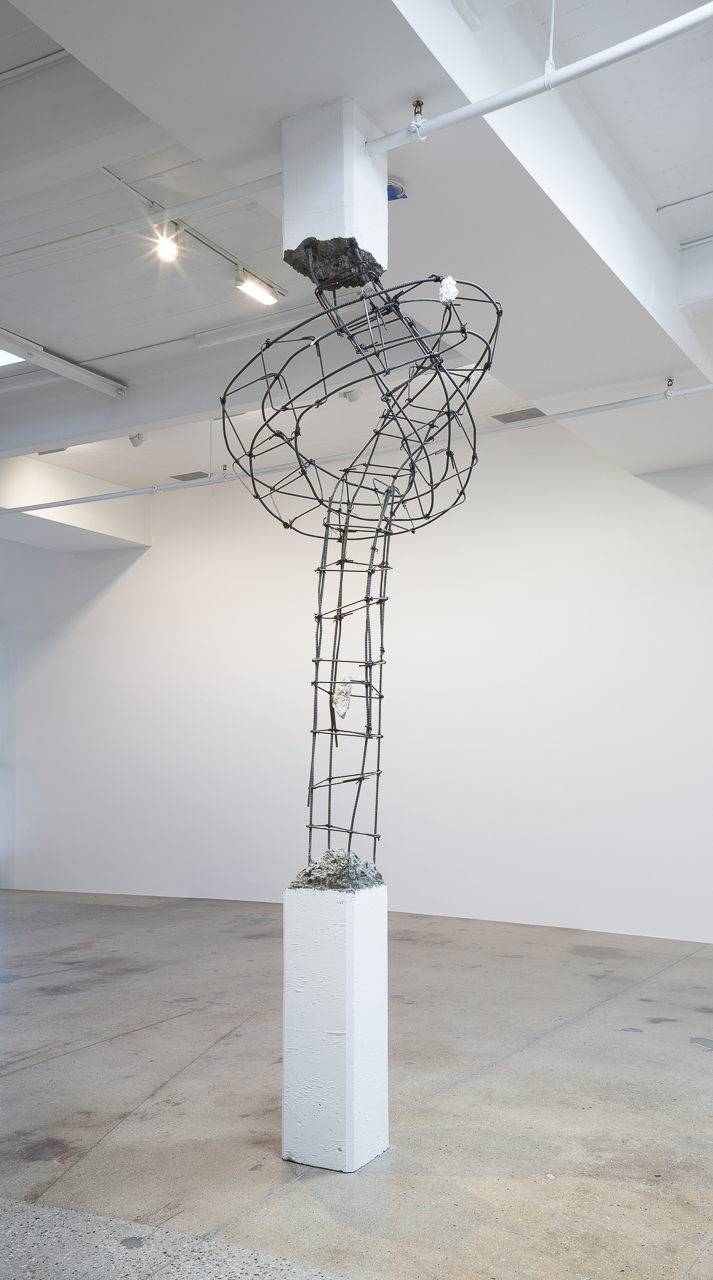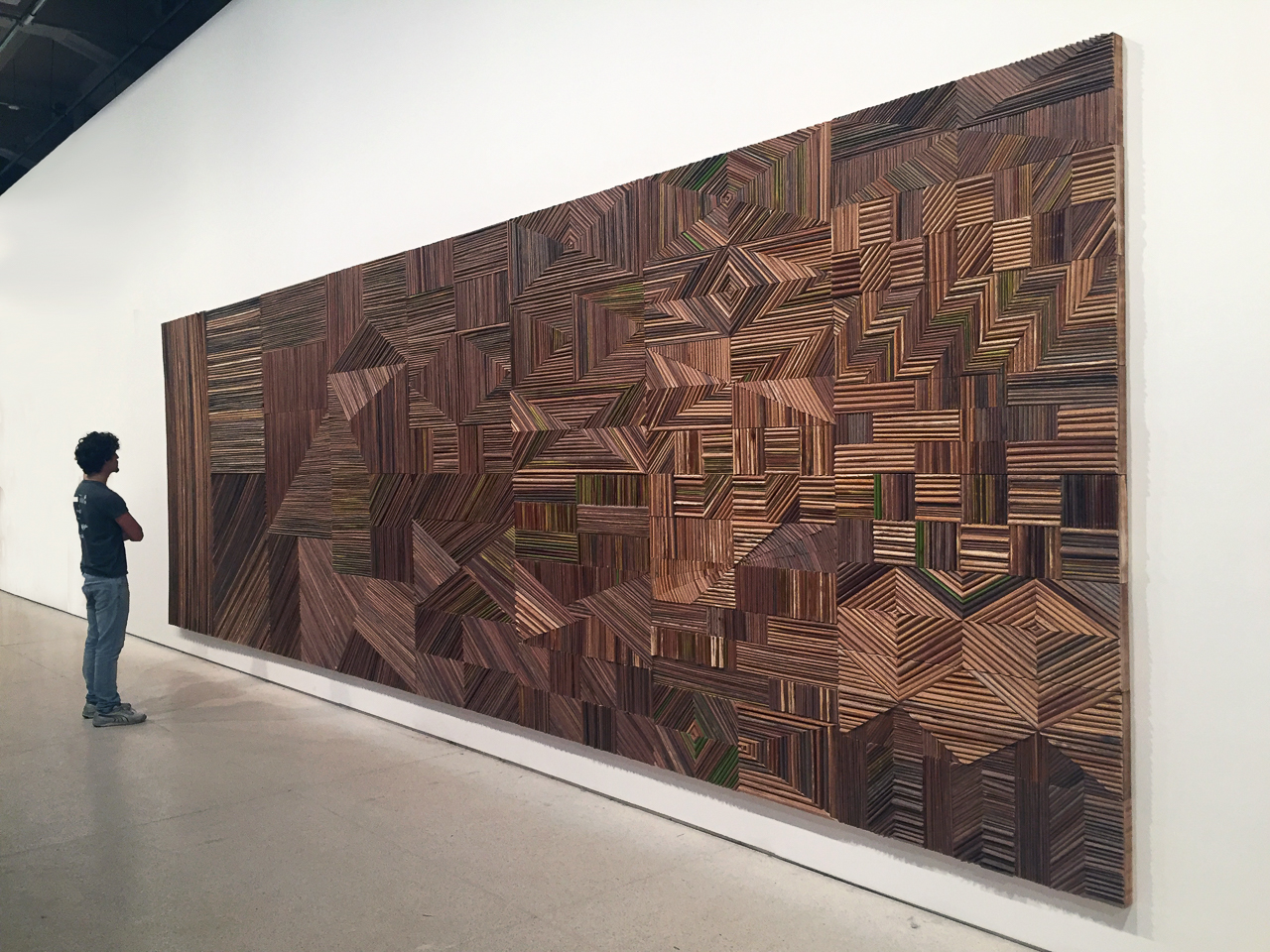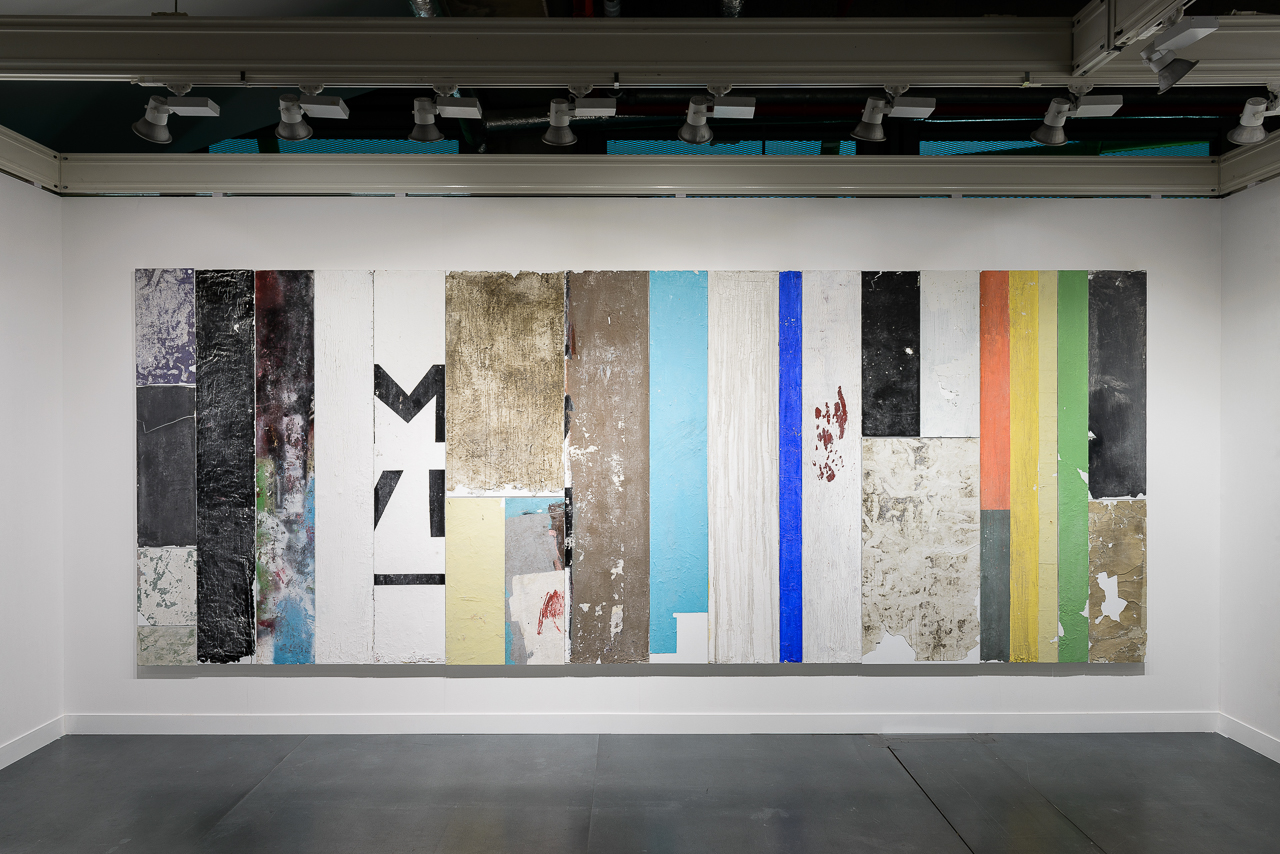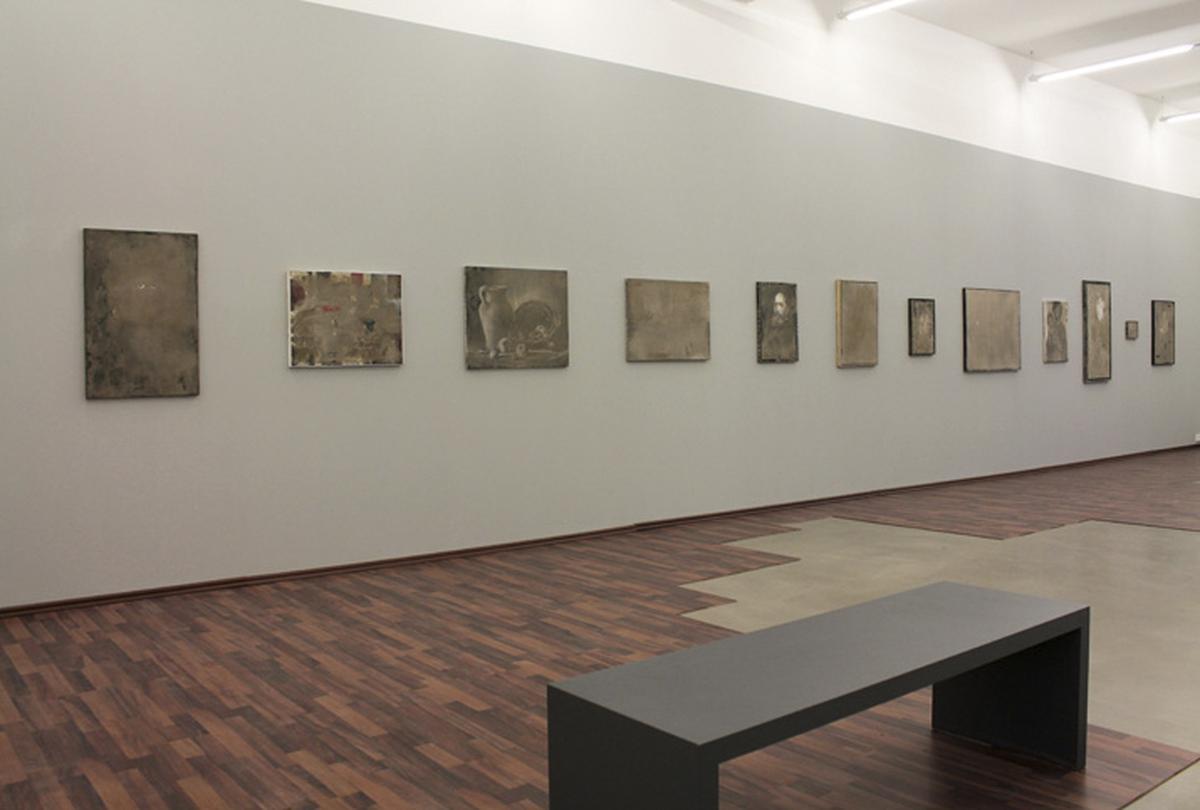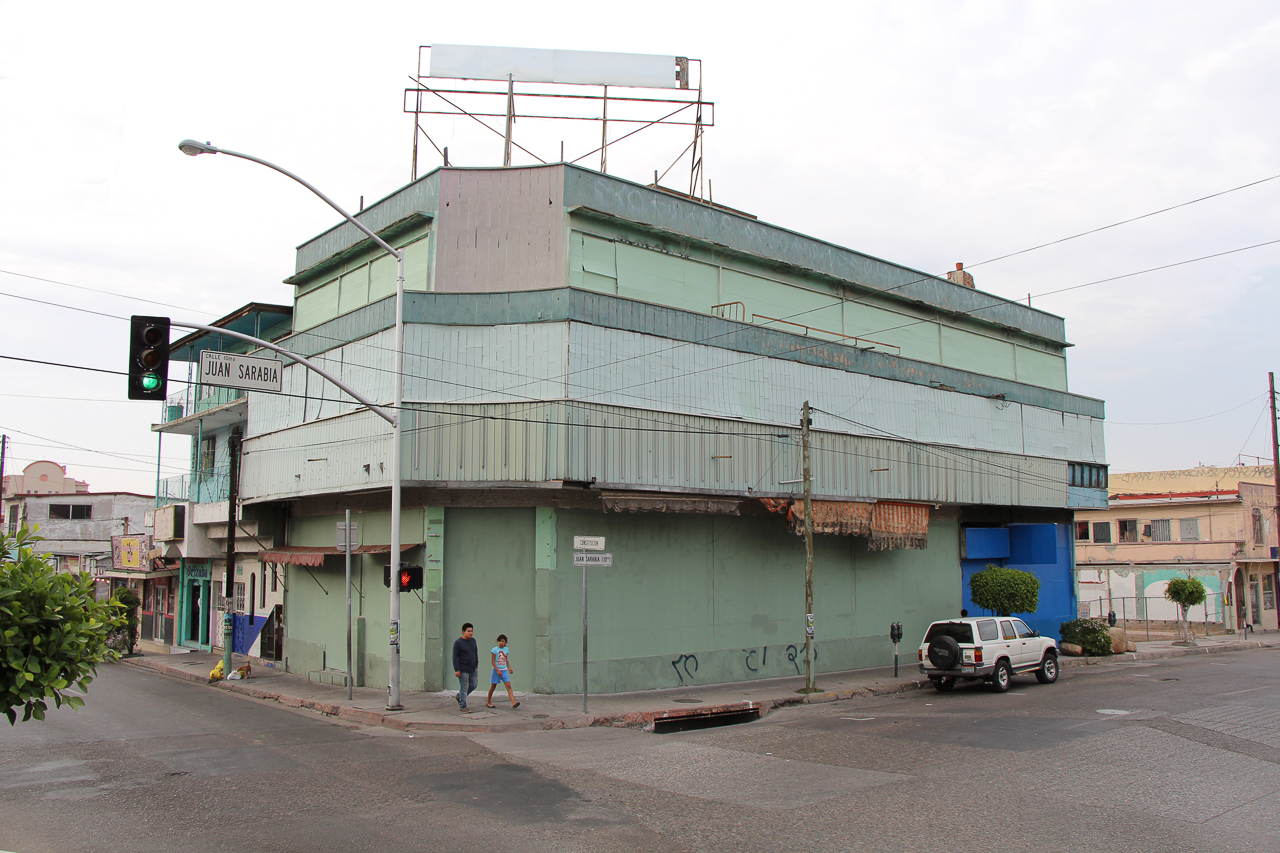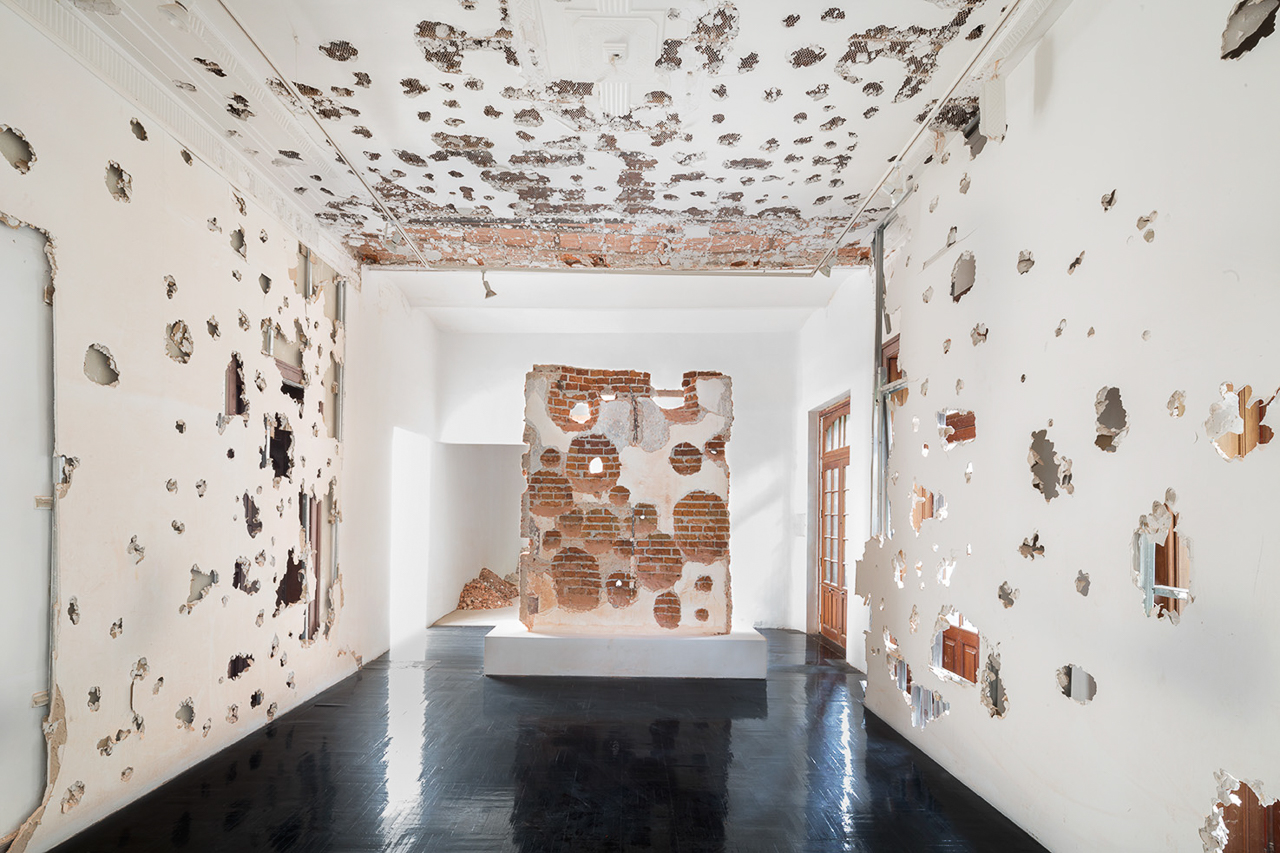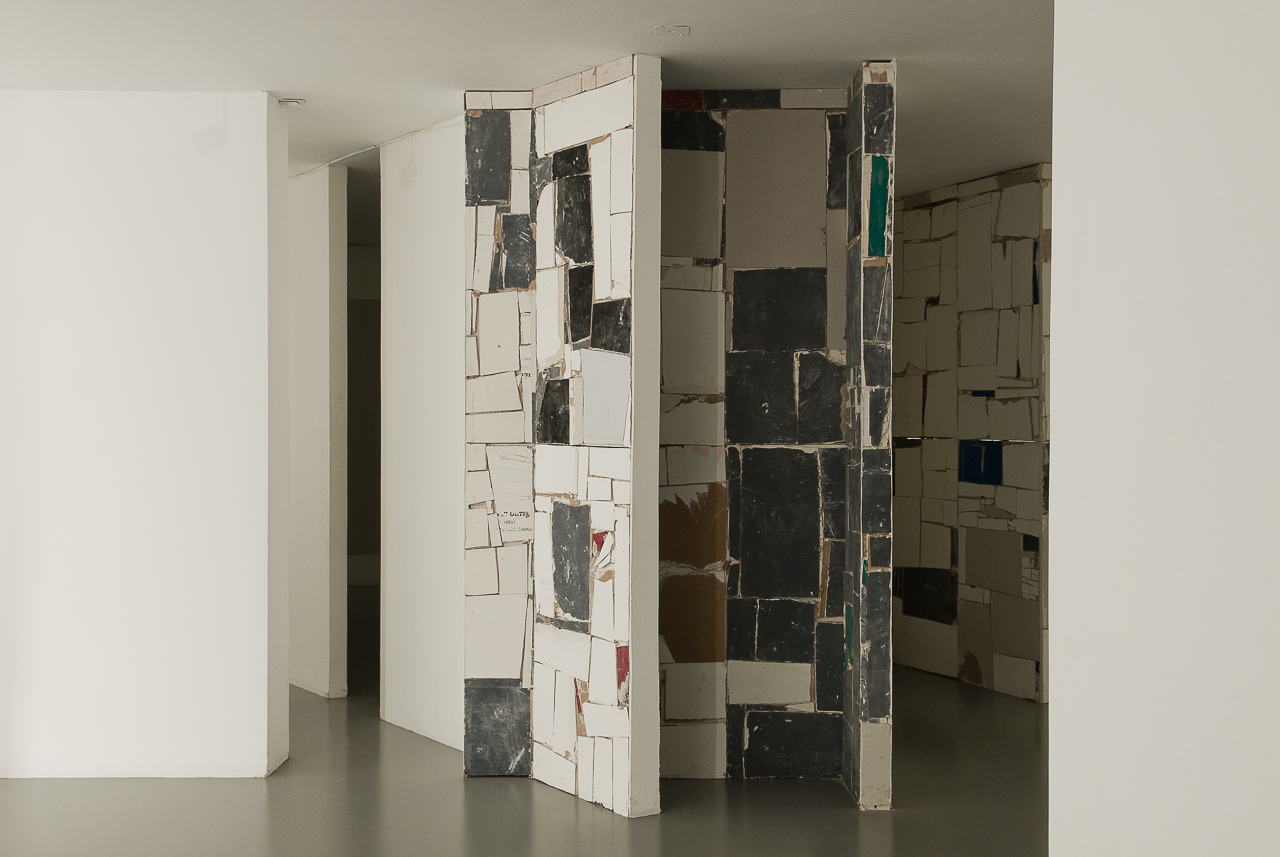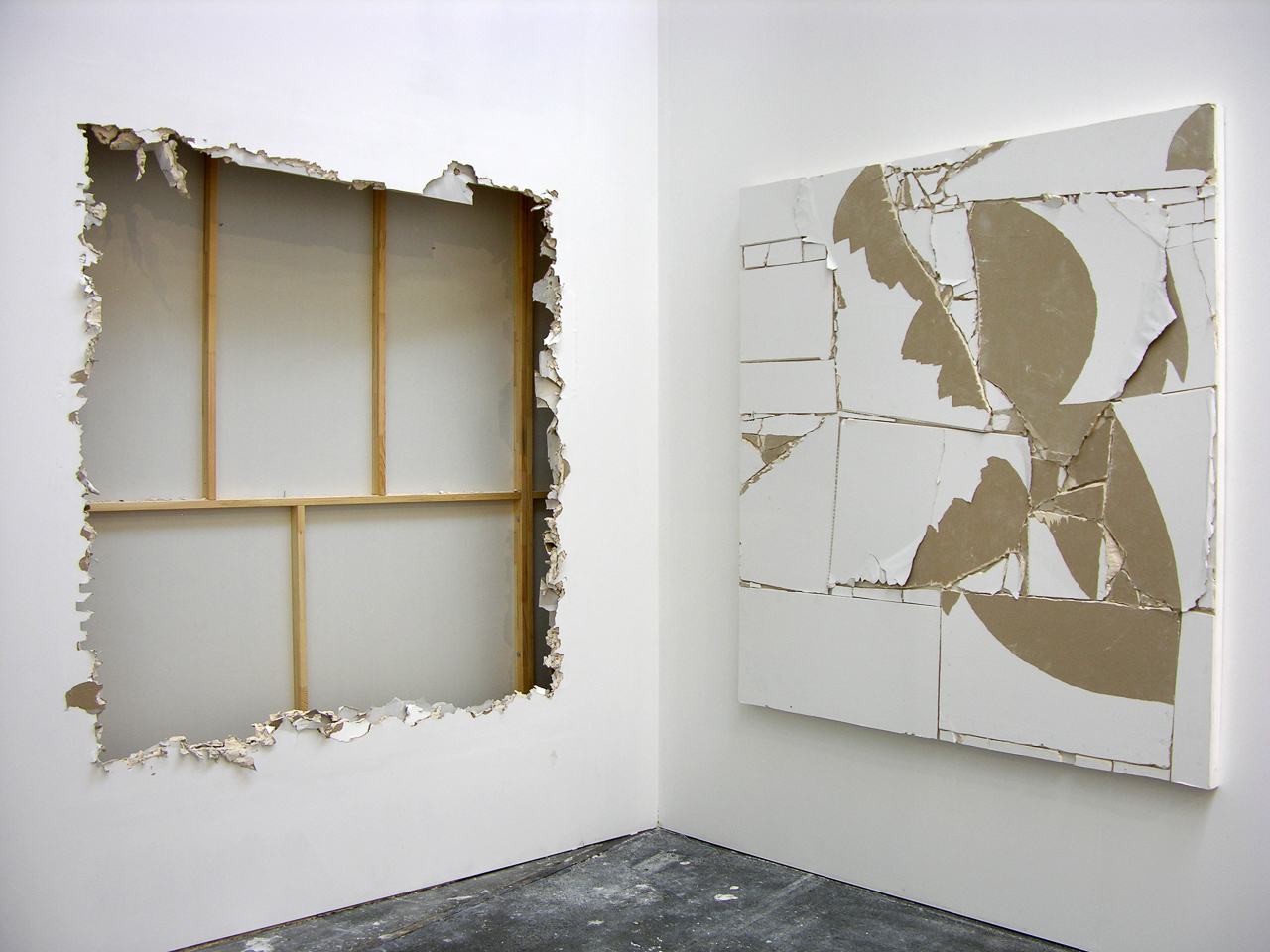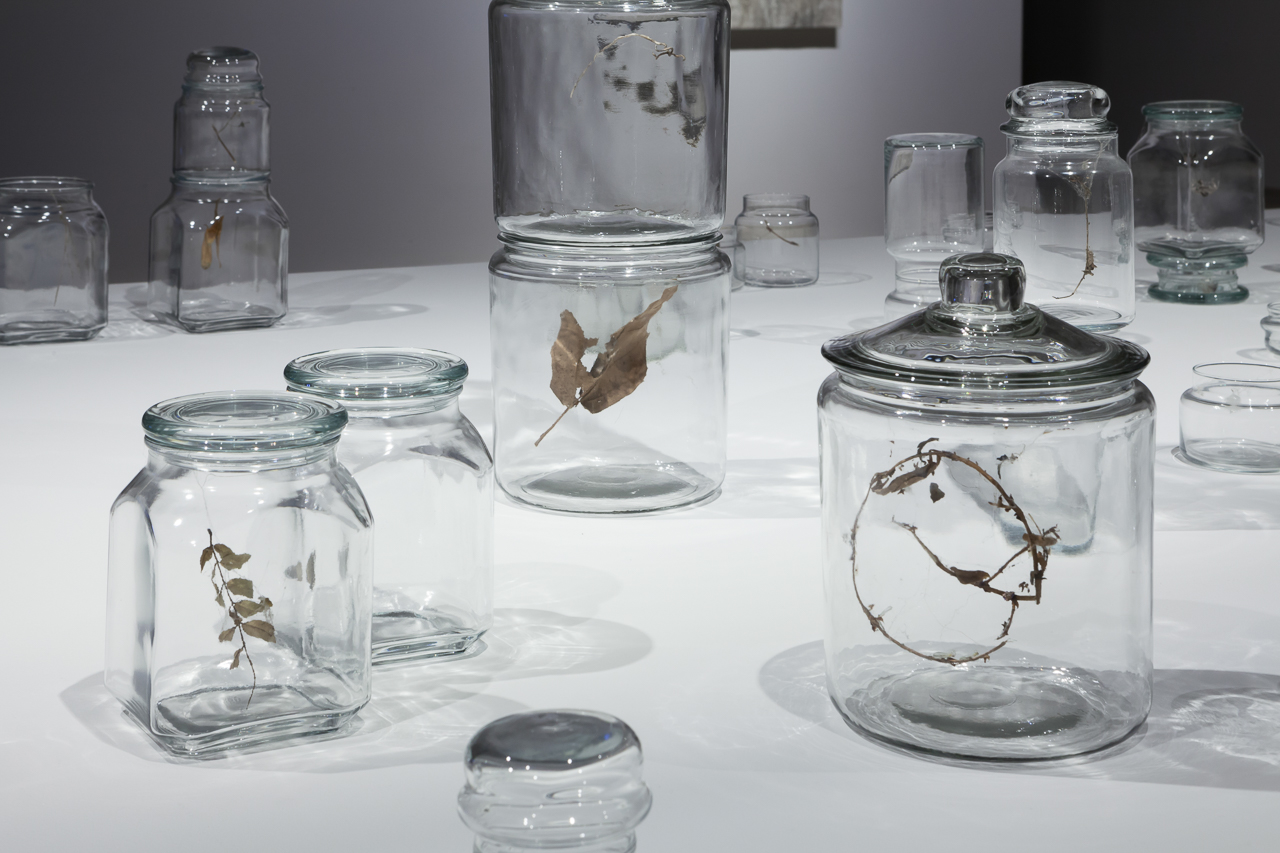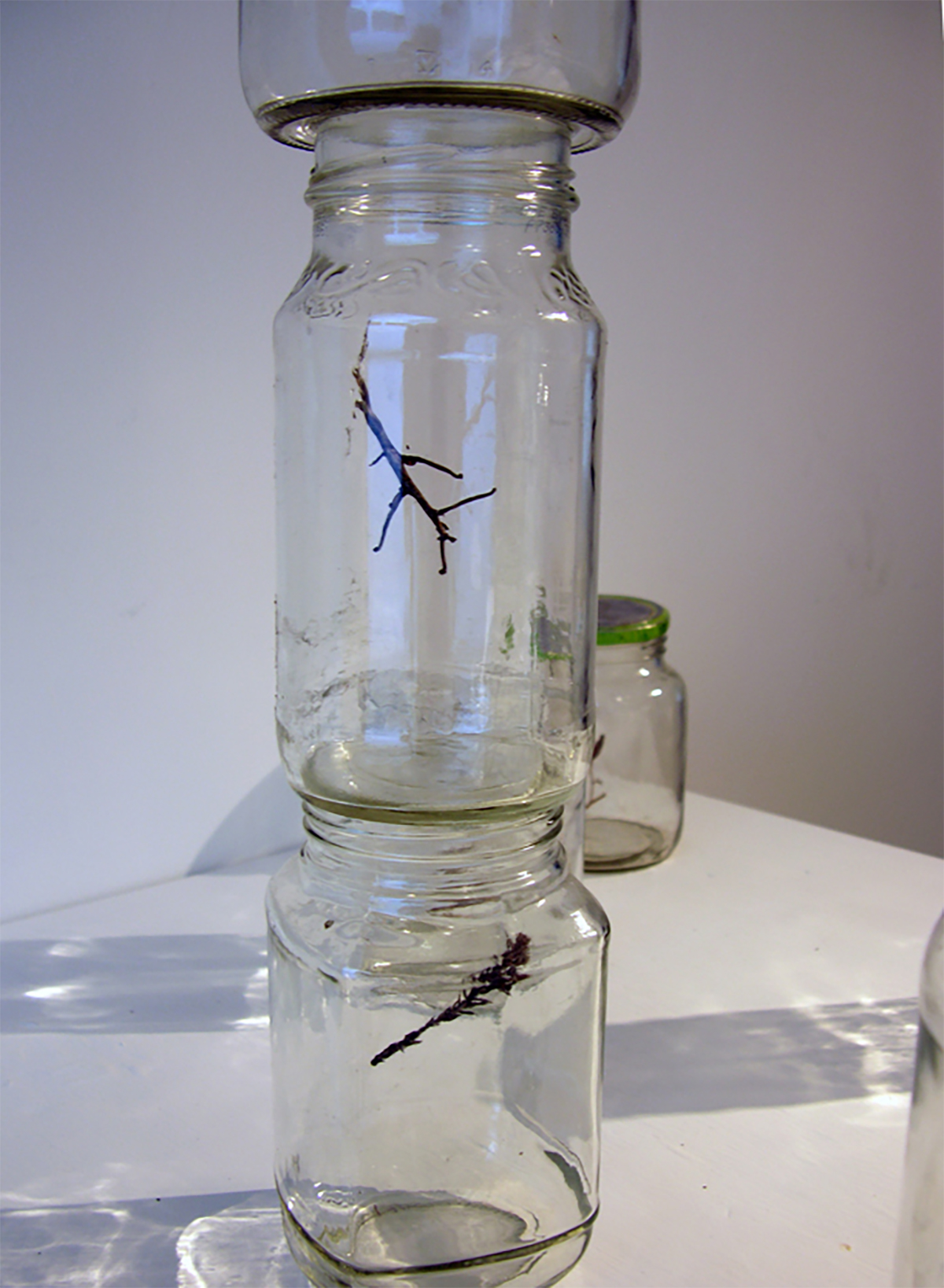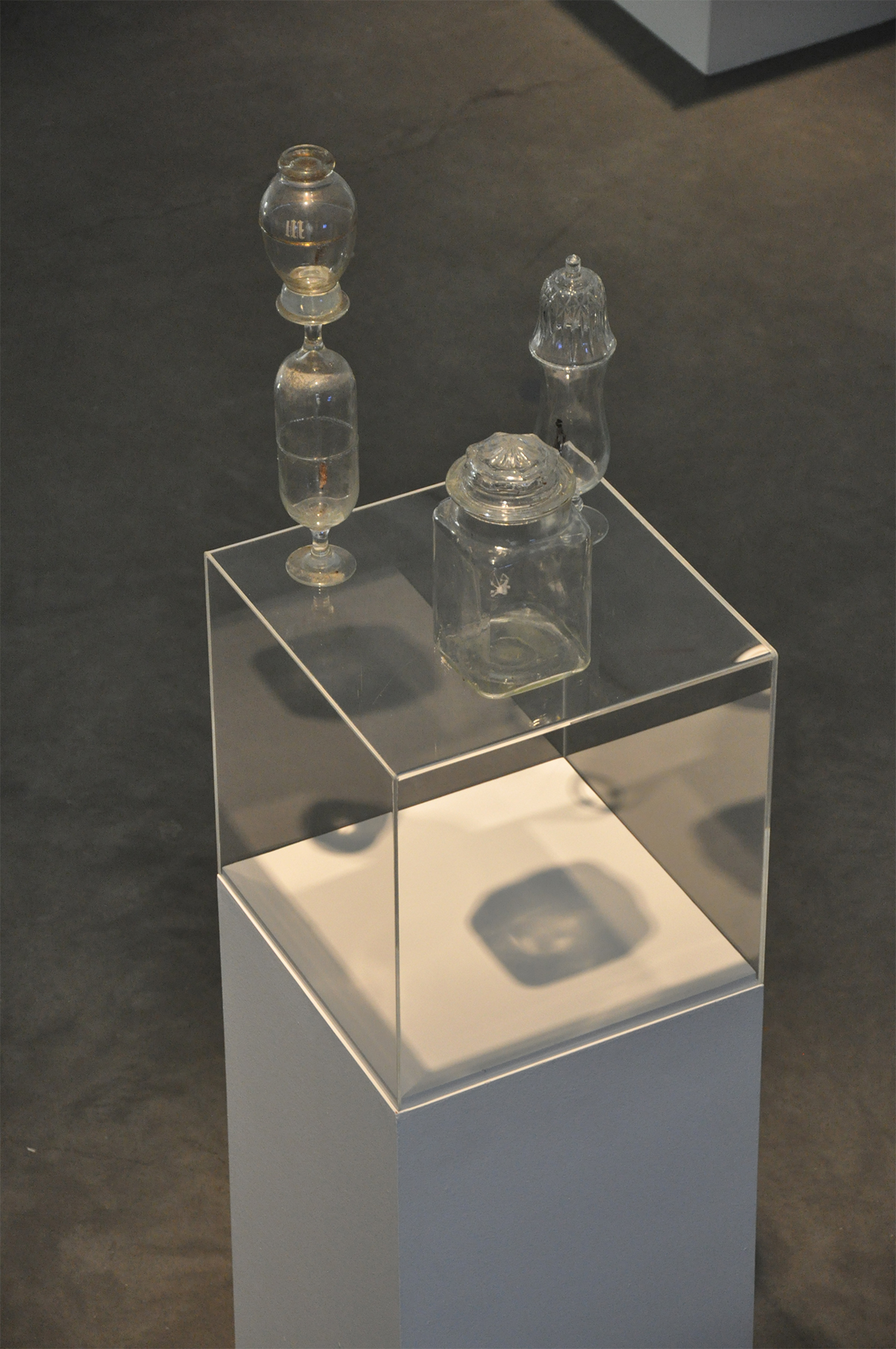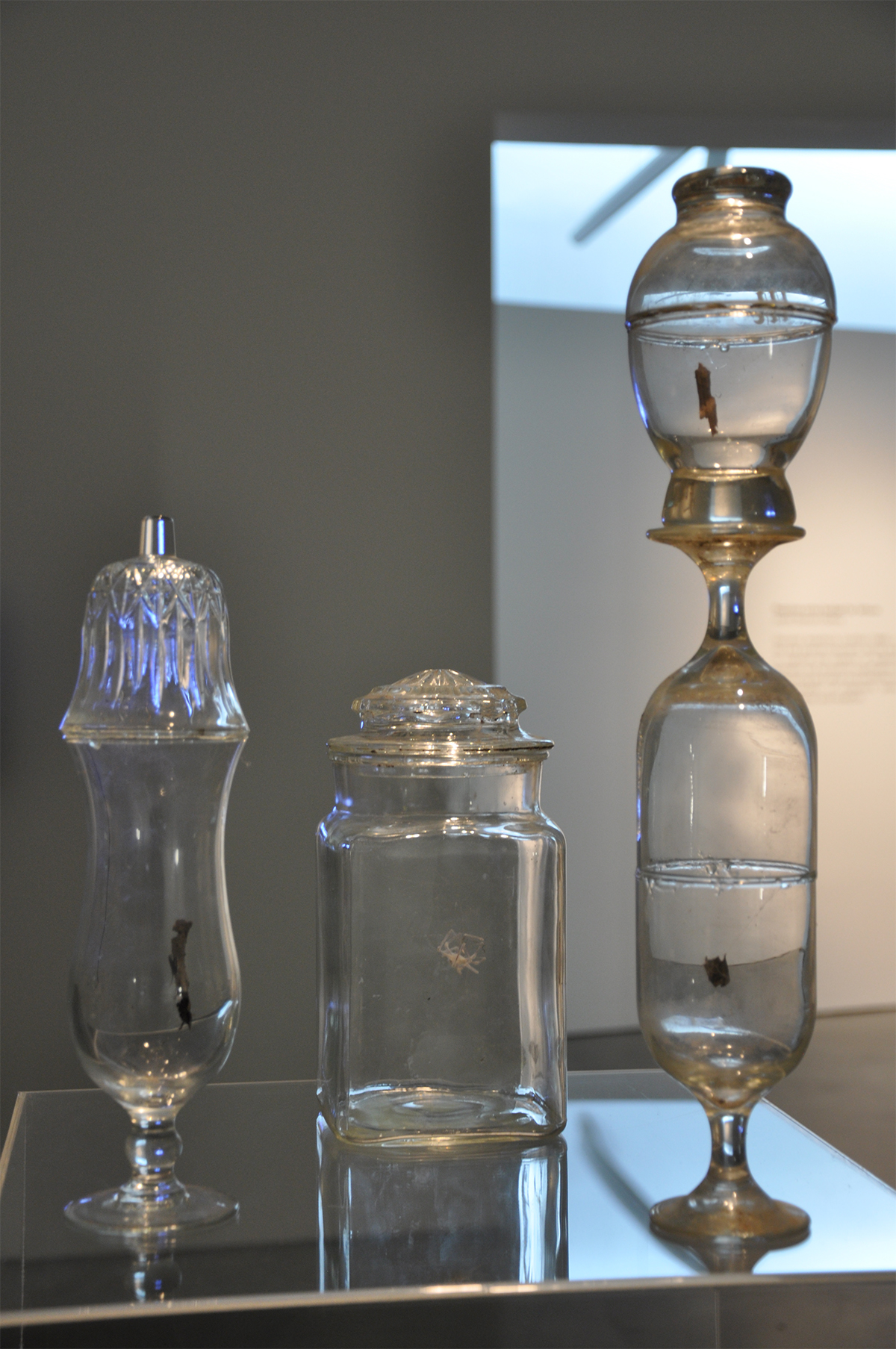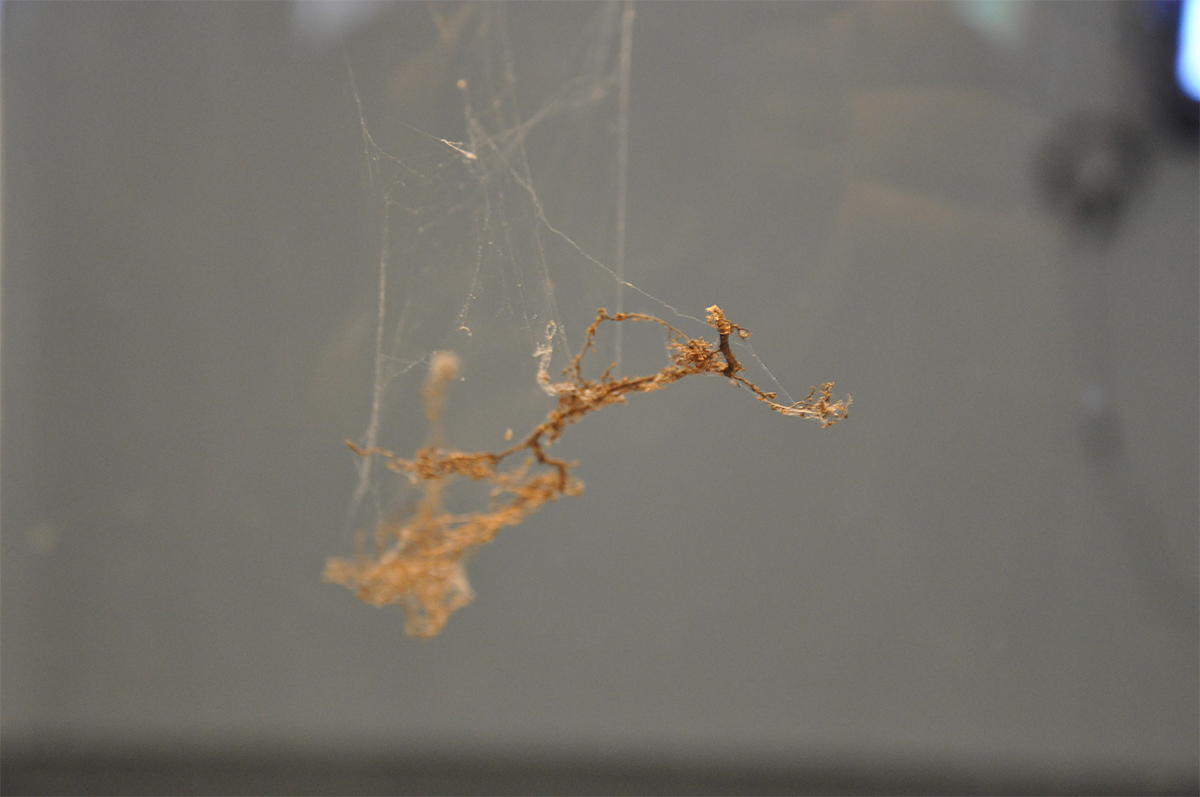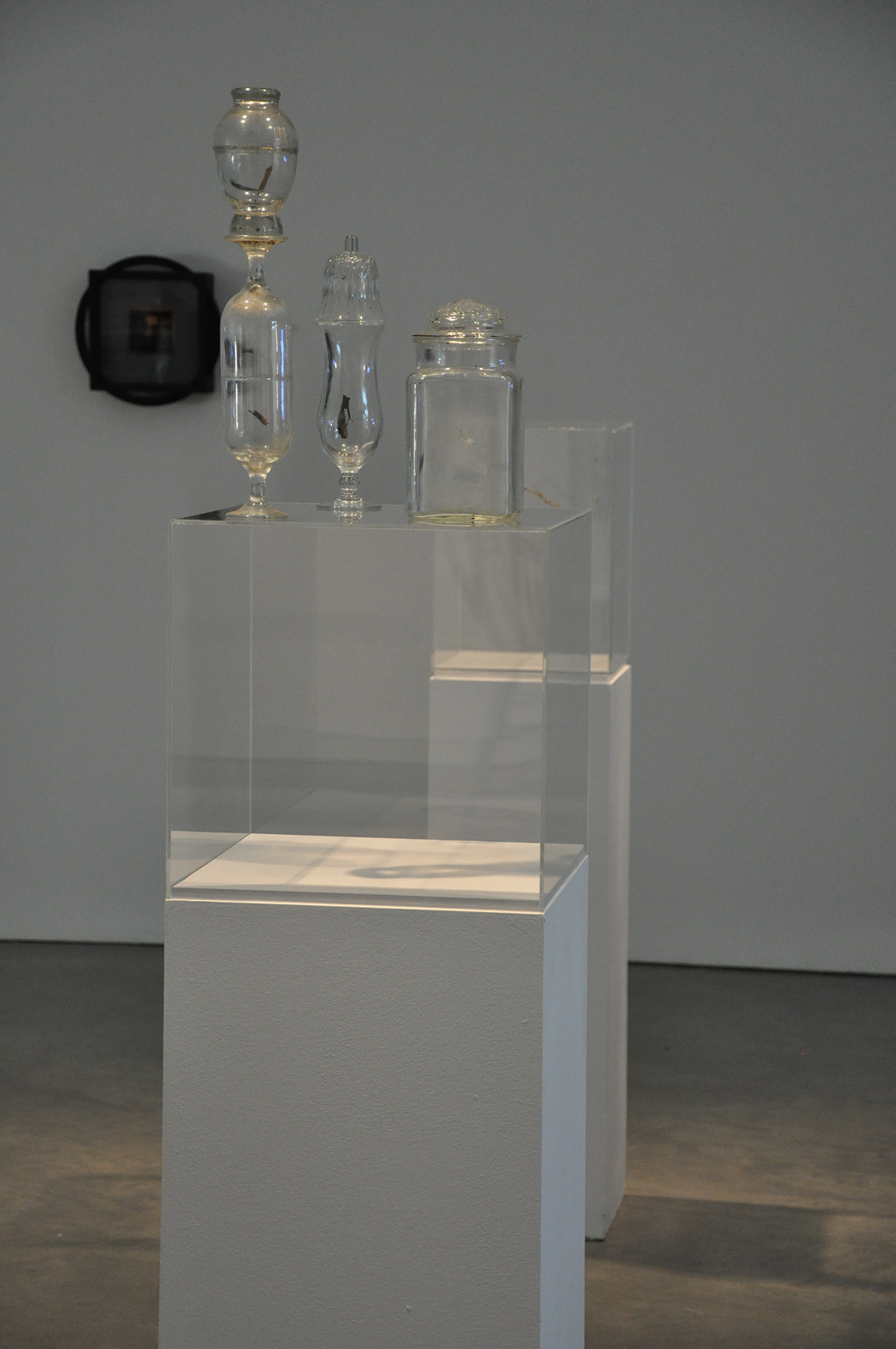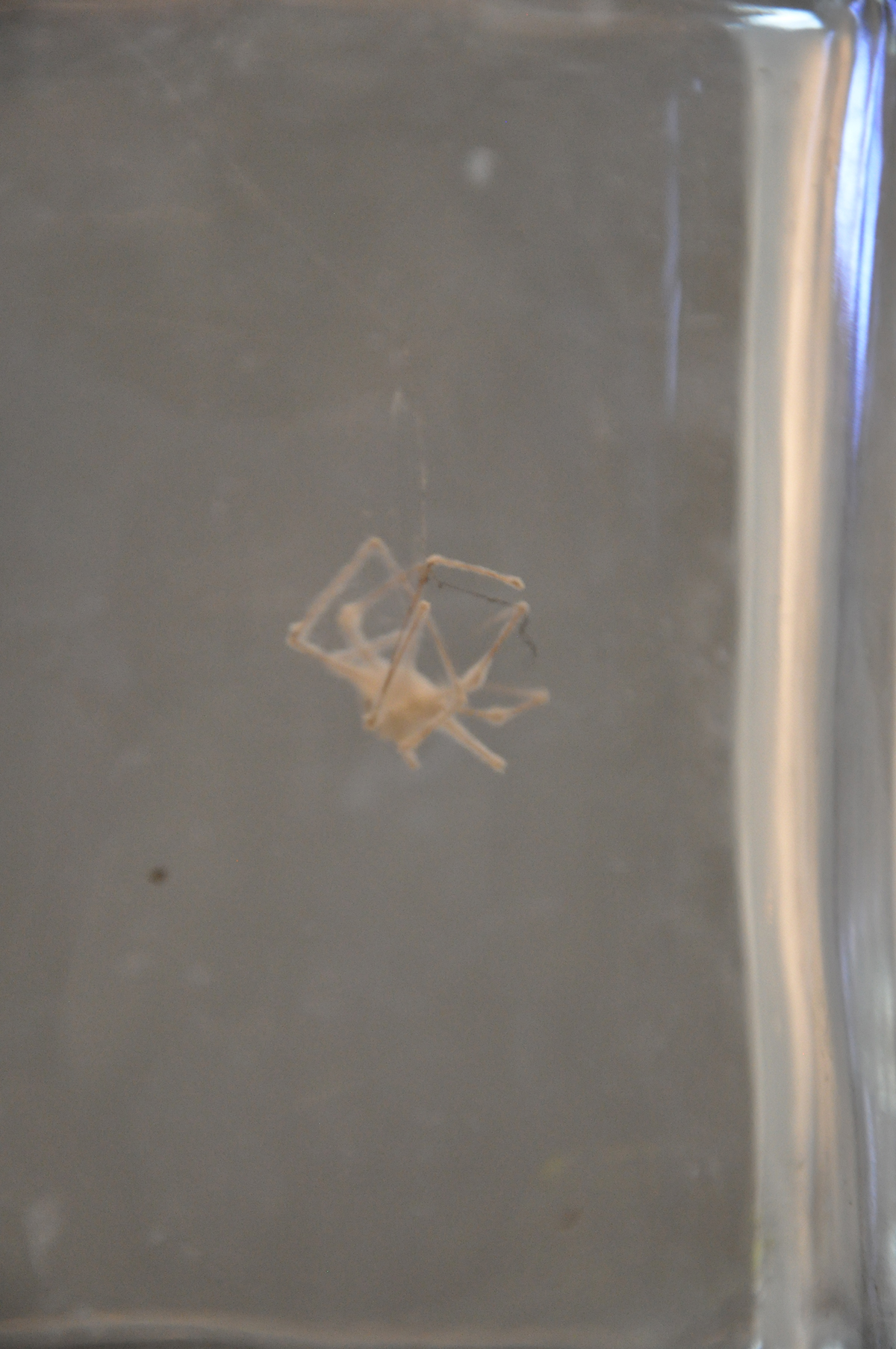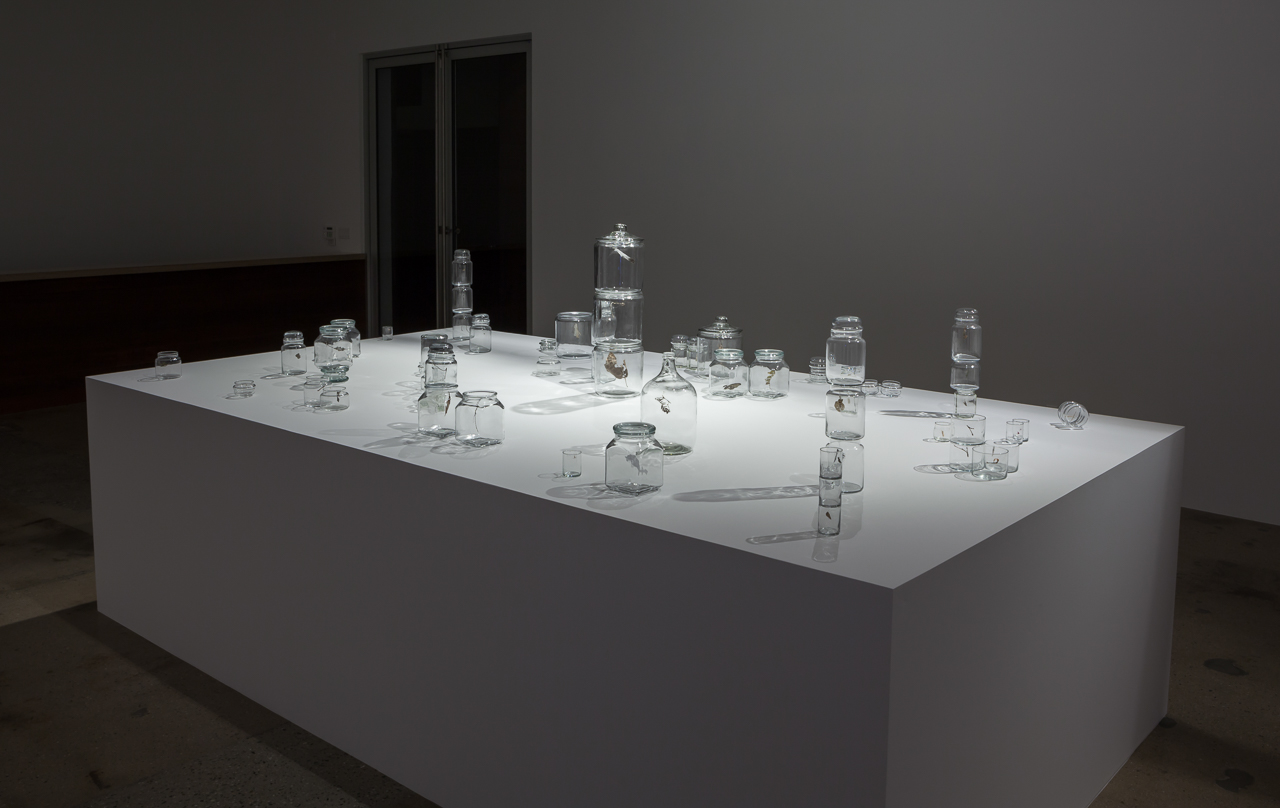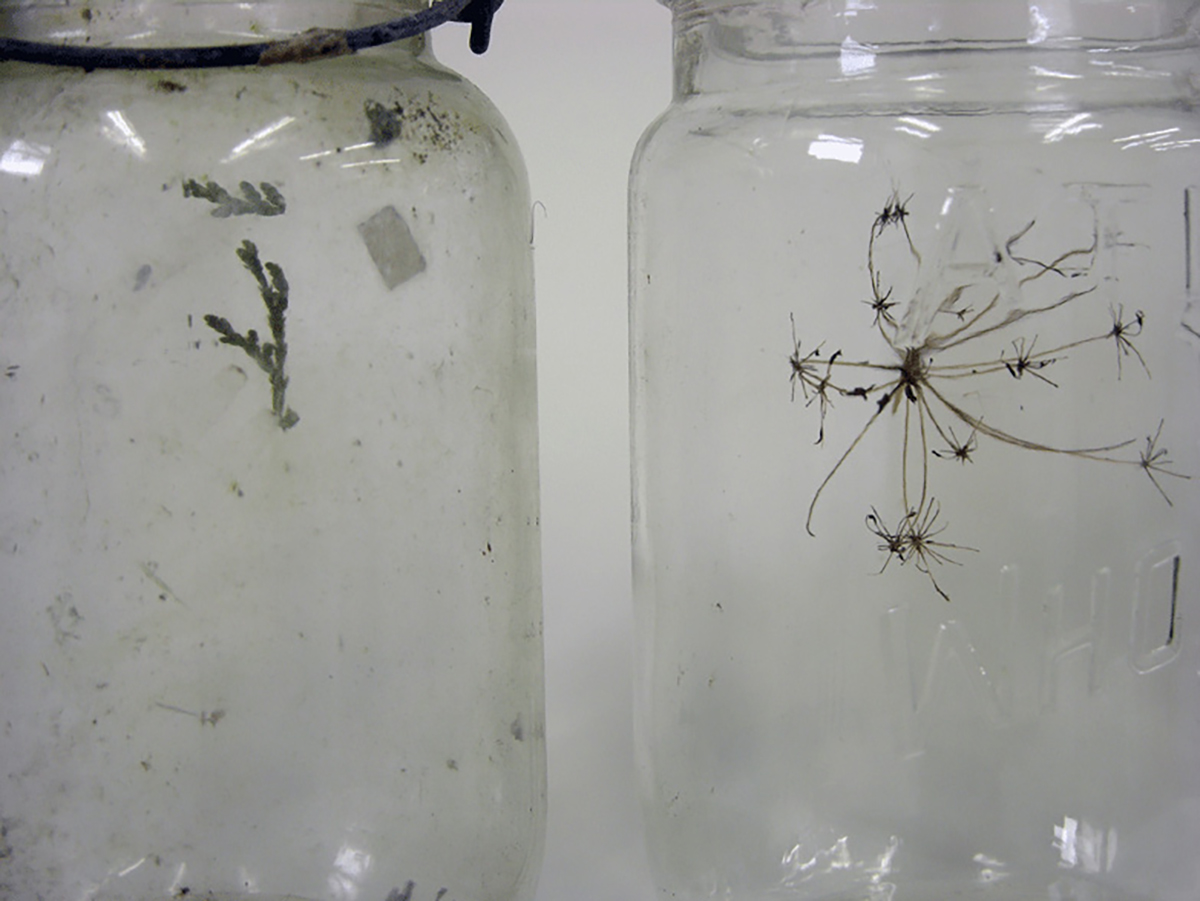Assisted levitation
Rasgado’s Assisted Levitación series invites viewers into a space where objects—branches, feathers, tree bark, stones—are delicately suspended within glass jars, held in a state of apparent weightlessness by the nearly invisible tensile strength of spiderwebs. In this paradoxical arrangement, familiar, everyday materials hover mid-air, as though caught in a moment beyond time, subtly defying gravity. Rasgado’s use of natural, often overlooked materials captures a sense of fragile permanence and hints at the quiet forces that shape our world yet often evade direct perception.
In Levitación, these objects are not merely contained or preserved; they embody an ongoing dialogue between forces of fragility and resilience, ephemerality and endurance. Each jar serves as a visual record of the artist’s meditative exploration into gravity and impermanence, functioning as a kind of clock that measures time in slow, steady transformations rather than fleeting instants.
In this way, the series draws the audience into an act of discovery that not only blurs the boundary between object and architecture but also challenges the role of the museum as a transparent mediator of art.
Materials
Various Objects and Spiderweb.
date
2007-2017
Exhibitions
⎖Museo jumex, CDMX
⎖ CCS Bard, Hessel Museum, NY
⎖Steve Turner, LA
⎖Molaa Museum, Long Beach
Collaborators
⎖Osvaldo Sanchez, curator
⎖Carlos Palacios, curator
⎖GabrielA Urtiaga, curator
Texts
⎖Eugenio Lopez
⎖Clayton Campbell
⎖Carlos Palacios
publications
⎖LA Review of Books,
⎖Catalogue of the Exhibition at Hessel Museum of Art & Center for Curatorial Studies Galleries at Bard College
⎖"Destello" exhibition catalogue ed. by Jumex Museum
Texts
Eugenio López
Published in:
⎖Destello Catalogue, Osvaldo sanchez, ed. Fundacion/Coleccion Jumex, 1ed. 2010
Works of art, like sacred books, reveal themselves to us with the same power to awe. In the case of religion, this the result of a profound truth whose meaning resides in poetic complexity; in that of art, it is the result of pointing to, in a tangible way, an algorithm that unites thought, the senses, fantasy, the body, our dreams, and places beyond. Over the course of time, spirituality has been considered an attribute shared by both these horizons. Nevertheless, today, it is common to say that spirituality has been buried beneath the seas. Despite the power of this affirmation, is it actually true? Or, as always, is it perhaps closer to us and not far away, although we desperately want to see it this way?
Art has always been a path towards spirituality; a path that also serves if we follow its trajectory in the opposite direction. With Glimmer we begin our 2011 exhibition sea-son, and with it a new decade of transcendental themes that help us to understand the relationship between art and different ways of knowing, with paths to elevate and cultivate the spirit.
This exhibition bears witness to the sense of the artwork as an object of desire-fruit, destiny, or seed-mo-tive power of life and representation of our corporeality.
Some of the pieces from our collection are bound together in this way, pieces such as Love – Sculpture for the Blind by Sarah Lucas, Love-me-me-me by Tracey Emin, and Untitled (Water/Neck) by Ann Hamilton. On the other hand, there are also pieces that like mantras or litanies provoke states of deep contemplation, such as Bass Straight by Hiroshi Sugimoto, Somewhere between Here and There by Jim Hodges, and Levitación by Pablo Rasgado.
Osvaldo Sánchez, who we have invited to curate this show, offers us a group of pieces in which body and spirit make up an inseparable entity. In one example of this union we have the power to move a sand dune—Cuando la fe mueve montañas
by Francis Alÿs; throw ourselves into the void and expose our fragility-Broken Fall (Organic) of Bas Jan Ader; or leave the impression of our body (the material and sublime witness of time) in nature-Alma Silueta en Fuego by Ana Mendieta.
In this emblematic exhibition we encounter pieces that evoke revelatory experiences, initiatory rites that take place far away from our contemporary vision in that Zeitgeist seems to exhaust itself, but not without first clouding our perception with its powerful rhetoric.
To elucidate this exhibition we have prepared this catalogue that includes different perspectives on the issues Osvaldo Sánchez presents us with. I thank both the authors and the curator for accepting our invitation. We hope that this catalogue, along with the program of academic and educational activities that accompany the show, will engender a wide-ranging dialogue amongst all who experience it.
Finally, we offer our gratitude to the artists, galleries, and collections that have generously lent us their works.
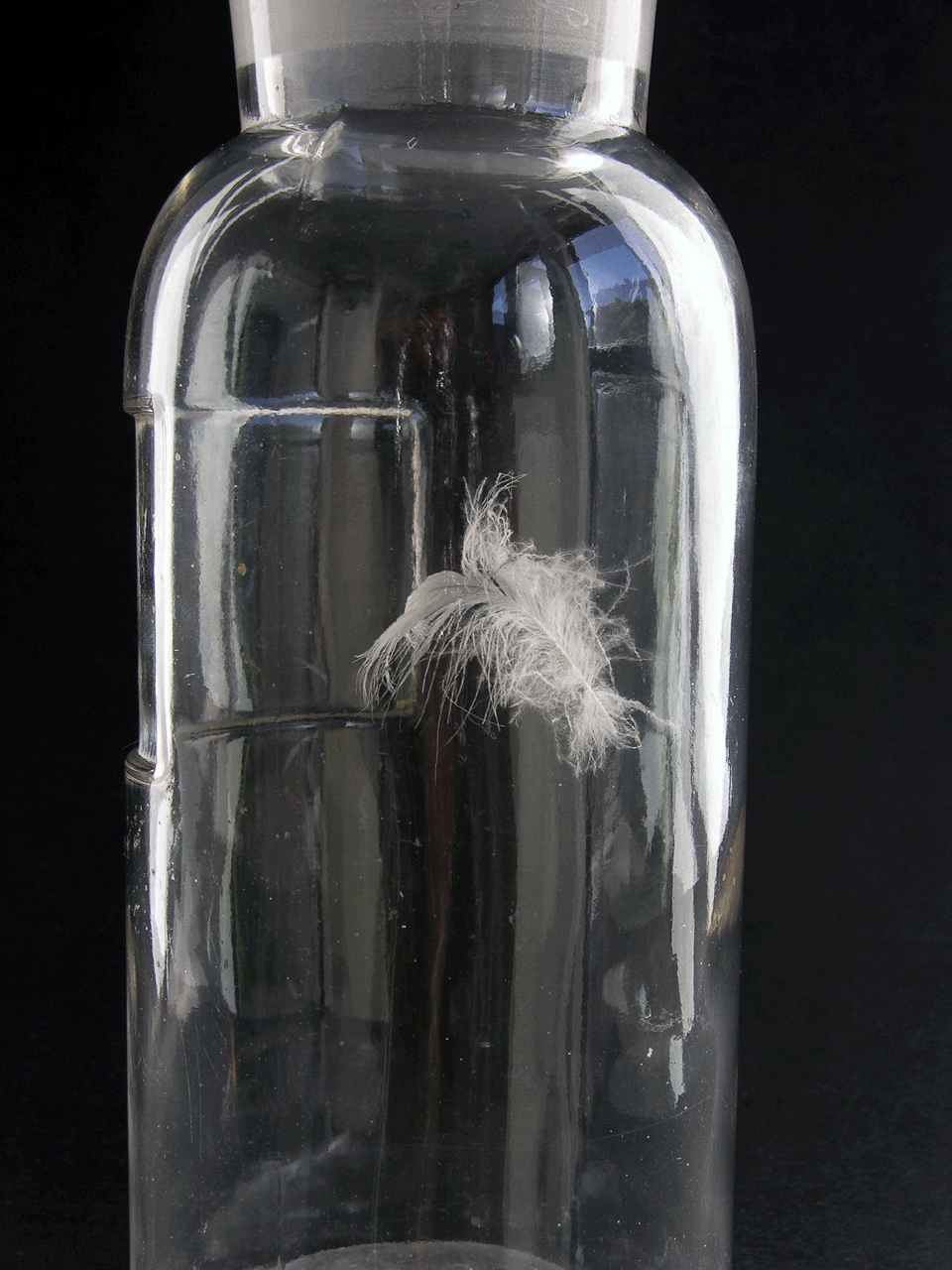
pablo rasgado, Assisted Levitation, 2007-2017. Various Objects and Spiderweb. Exhibition view at Hessel Museum
projects
